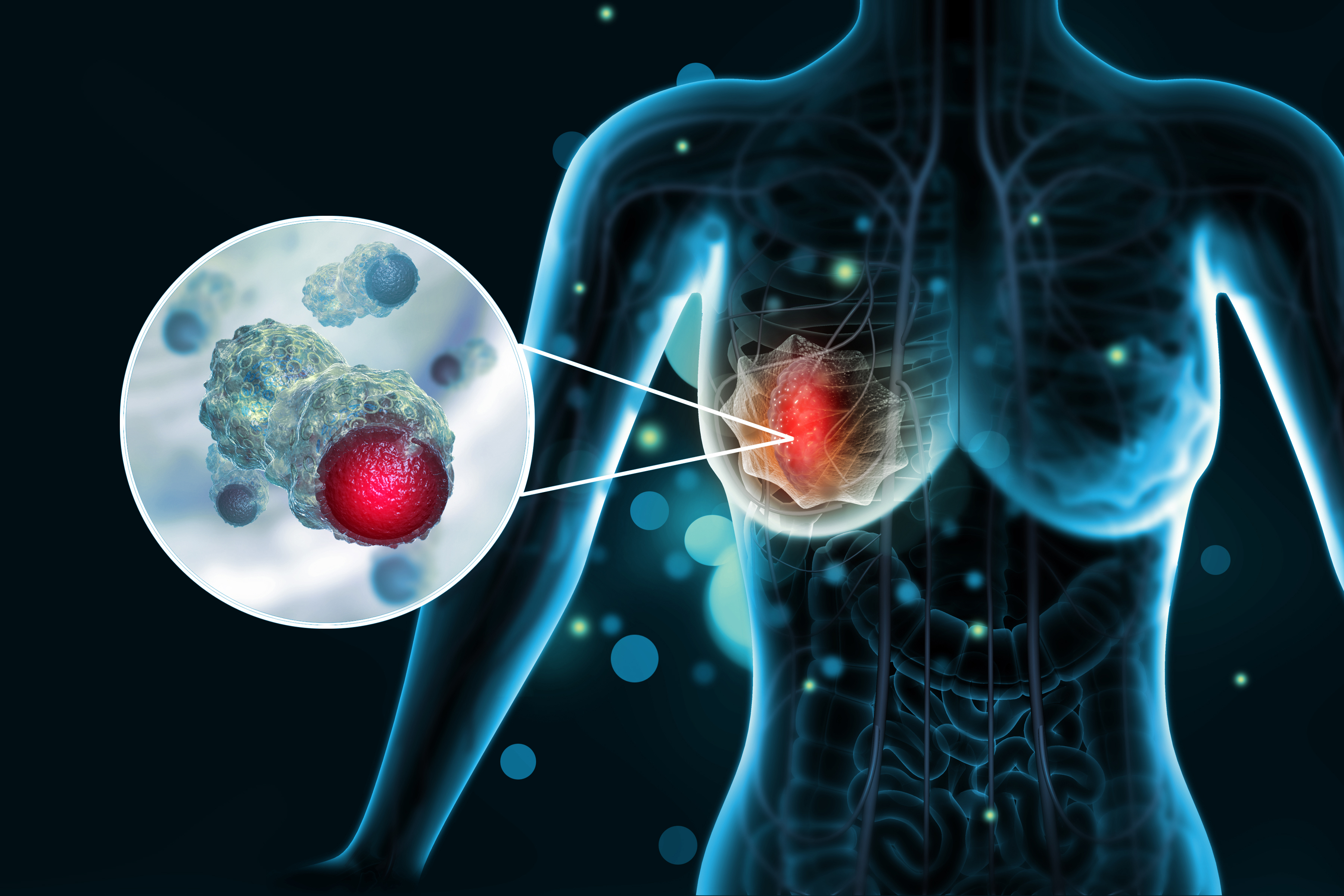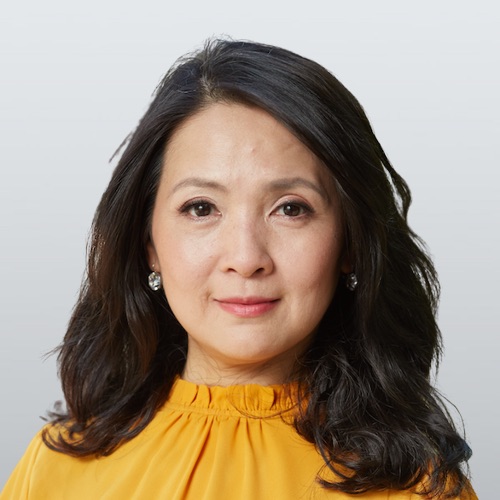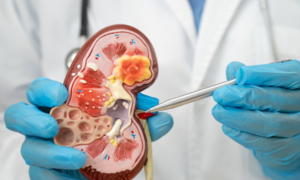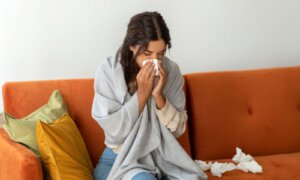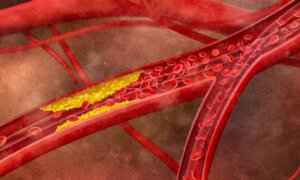Breast cancer is a major threat to women’s health around the world, and these days, women are developing it at increasingly younger ages. On NTD’s “Health 1+1” program, Dr. Wei Lihong, an oncologist at North Shore Long Island Jewish Medical Center, and Dr. Eric P. Winer, director of the Yale Cancer Center at Yale University School of Medicine, discussed the prevention, diagnosis, and treatment of breast cancer from different perspectives.
Dr. Cheng Yu-shu, an attending physician at the breast surgery department of the China Medical University Hospital in Taiwan and a breast cancer survivor, shared personal experiences of how breast cancer patients reassess their lives during treatment.
A Doctor’s Personal Experience With Cancer
Cheng said that one Sunday in June 2019, she discovered a lump in her breast.
She arranged a checkup, and the result was something she neither wanted nor found easy to accept: She had breast cancer, and it was triple-negative breast cancer (TNBC), the most malignant of invasive breast cancers. It is also the most aggressive type and the most likely to recur and metastasize. The treatment process is arduous.
After the diagnosis, her first reaction was to hide her condition because she subconsciously felt that as a breast surgeon, having breast cancer herself was a personal failure.
Her subsequent treatment did not go as smoothly as expected. During the fourth and fifth rounds of chemotherapy, she went into shock due to infection. She required emergency treatment and was admitted to the intensive care unit.
Cheng admitted that although she tried hard to conceal her illness, her colleagues still knew about it. With the help of a psychiatrist, she began to share her experiences in closed-group counseling and received numerous blessings and much encouragement.
After that, she actively underwent chemotherapy and other treatments and experienced various side effects, including poor immunity, mucosal damage, skin rashes, nail deformation, hair loss, fatigue, vomiting, diarrhea, and more. Because of this personal experience of both the treatment and its side effects, today she better understands how her patients feel.
Of all these side effects, the one that affected her most was the hair loss. As a doctor, she used to prescribe various chemotherapy drugs to patients, and she found it difficult to understand why some of them refused treatment for fear of losing their hair. She had believed that since hair loss was not life-threatening, it was the least worrisome side effect.
But when she experienced similar side effects of chemotherapy firsthand, she understood how others felt. Watching her hair fall away was like watching part of her body leave her, and she could do nothing about it. This feeling of helplessness made her panic.
During this period, Cheng had a serious conversation with her father about what made a person useful. They discussed how caring for others as a doctor was an admirable pursuit but said that it didn’t define whether a person was useful or not. “If you can care for another person, then do that,” he said. “If you are too weak to care for even one other person, then take care of yourself and live a safe, healthy, and happy life.” These words from her father gave her great comfort.
During treatment, she continued to wonder, “Why me?” Today, she said she thinks one of the reasons may have been to break down the part of herself she falsely believed to be perfect. Cheng said she now believes that accepting imperfection is key to starting a new life and that she must take better care of herself to prevent the cancer from coming back.
Importance of Breast Cancer Classification
Wei said the most common breast cancer is invasive (infiltrating) ductal carcinoma, accounting for 90 percent of all cases. Lobular breast cancer accounts for about 5 percent to 10 percent of all cases.
Breast cancer is divided into four stages. Determining which stage one’s cancer is in requires complex clinical examinations and other auxiliary assessments.
Wei emphasized that cancer treatment is highly complex, so staging is essential. Doctors will prescribe different treatment plans based on various stages. For example, for Stage 0 patients, surgery and a little medication may be good enough, whereas treatment is much more complicated for Stage 4 patients.
After staging, doctors also need to analyze the characteristics of breast cancer. For example, if a patient is diagnosed with Stage 1 breast cancer, it could be benign or malignant. In this case, doctors perform various in-depth examinations on breast cancer tissue sections to determine its characteristics. For example, two-thirds of breast cancer patients will exhibit estrogen and progesterone receptors.
Knowing which receptors are involved enables doctors to offer more effective options, such as antihormonal treatments. For instance, if the “HER2” protein exists, the breast cancer is likely more aggressive, but highly effective targeted therapy can be employed.
Wei said that as a general rule, as long as a woman’s breast cancer has not yet reached Stage 4, she will have a high survival rate.
No Rush to Have Breast Cancer Removed Immediately
It is a common belief that once cancer is detected, it should be removed immediately before any other treatment. However, there are a few different situations in which this may not be the best option. For example, if the cancer is TNBC, or if the tumor is larger than 2 centimeters, clinical tests have proven that the survival rate can be greatly improved if chemotherapy is done first.
Moreover, if localized lobular breast cancer tumors are too large, removal at this stage would render the operation and postoperative reshaping more difficult. Therefore, targeted therapy to shrink the cancer before surgery is recommended. This can improve postoperative cosmetic effects and survival rates.
Wei emphasized that determining when a patient requires surgery and which treatments will be needed beforehand is a complex clinical decision. Therefore, patients should not be in a hurry to opt for surgery. Instead, they are advised to seek opinions from multiple medical professionals before making a decision.
Breast Cancer Incidence and Prevention
In addition to skin cancer,
breast cancer is the most common cancer among U.S. women, and its mortality rate ranks second only to lung cancer. Statistics suggest that 13 percent of U.S. women will develop breast cancer at some point in their lives, meaning one in eight women will become breast cancer patients.
Wei said that in recent years, breast cancer has begun to affect the younger generations. According to her, there are many reasons, including obesity and early onset of menstruation in women.
However, she emphasized that breast cancer is not typically lethal. Although the incidence rate is high, the survival rate is also exceedingly high. For many women, as long as they are diagnosed early, the cure rate can be as high as 99 percent. The key is to follow the doctor’s advice and get breast examinations on time, Wei said, adding that early diagnosis will lead to an early cure.
Wei said that to prevent cancer, we must first understand the likely carcinogens. These can be divided into unmodifiable and modifiable factors.
1. Unmodifiable Factors
Five percent to 10 percent of breast cancer patients are born with genes that make them more vulnerable to its incidence, such as
mutated BRCA1 and BRCA2. If these genes are present, the risk of breast cancer exceeds 60 percent.
Wei said that many breast cancer patients or people with a family history of breast cancer have begun to conduct extensive checks of their family genes. If they are found to bear such genes, the age at which they should be screened for cancer will differ from that of the average person.
Women at high risk who carry these genes can also have their breasts removed as a precautionary measure and then undergo breast reconstruction surgery.
2. Modifiable Factors
According to Wei, the following lifestyle factors should be considered:
- Manage stress and keep a proactive, positive mindset.
- Eat a healthy, whole-food diet, avoiding toxins that lurk in processed food, tobacco, and alcohol. Also, be aware of endocrine-disrupting chemicals in personal care products.
- Exercise regularly and follow a consistent bedtime routine.
- Follow your doctor’s advice and undergo appropriate screenings.
Doctor Calls on More People to Participate in Clinical Trials
Winer said that breast cancer is more common among women in their 40s to 70s. Statistics show that from about age 45 onward, the incidence rate begins to increase drastically.
Clinical trials are an essential way to evaluate new drugs, but the proportion of cancer patients participating in clinical trials in the United States is still small. This is especially true among Asian women, who participate less often in clinical trials.
Winer emphasized that side effects in clinical trials may differ across racial groups. Therefore, more Asian women must participate in clinical trials so we can have a better understanding of how they fare in treatment.

